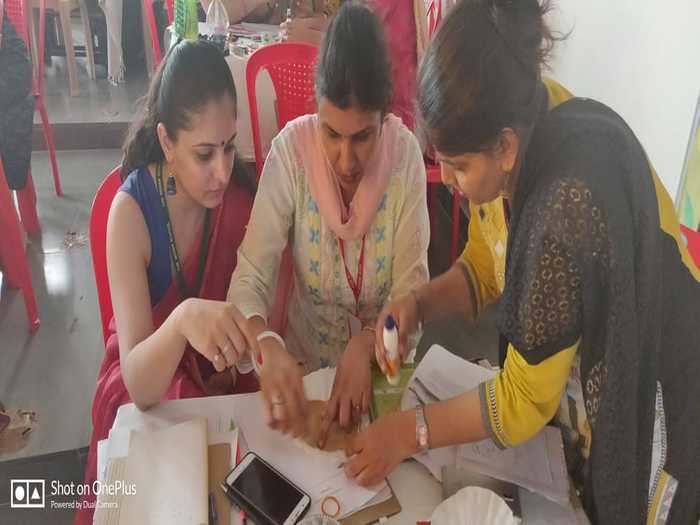CBSE Teacher workshop on STEM techniques
A one-day Capacity Building Programme for teachers of science was conducted on 6 July 2019 by CBSE at the Red Roses Public School, Gurugram. Ms Kriti Chhabra represented The Indian School at the event which saw the participation of 60 teachers of several schools.
Dr Amitabh Sharma and Ms Deepti were the resource persons who skillfully engaged the participants in a discussion on the prevalent education system in India. The purpose of the capacity building programme was to highlight a challenge-based, hands-on practical education to foster inquisitive minds, logical reasoning and collaboration skills triggering innovation. Therefore, STEM education, known for its focus on science, technology, engineering and math is the need of the hour to help students take a leap from being users of technology, to innovators.
STEM seeks to educate by having students find solutions to real life challenges which are authentic, applicable and actionable. STEM pedagogy is a natural corollary to Montessoris do-it-yourself method of learning and is proven to work towards elevating the understanding and application of knowledge. When a student explores math or science concept through project based learning, the knowledge inseminates indelibly only to be gainfully applied in future engineering or technological pursuits with an innovative flavour. This is the beauty of STEM- a process of self-discovery triggered by inspiration and fuelled by enquiry.
The redundancy of the conventional method of teaching was underlined during the discussion and the gathering was encouraged to embrace innovative pedagogy.
After a fruitful discussion, the teachers were divided into groups of four and five. Through several innovative activities like measuring vital capacity, preparing a mask, arranging series and parallel circuits and designing a helmet, a constructive and collaborative learning process was emphasised upon.
The groups were tasked to present a working model of a safety helmet which was to be effective as well as affordable. The desired material for the helmet needed to be strong and durable, be able to protect the human brain from grave injury, and yet be light in weight.
The second activity required the teachers to design a face mask as protection against pollution with random material like strings, cups, tape, coffee filters, thin felt, tee-shirt, and needle. These activities highlighted problem solving in our day to day life.
[gallery link="file"]
Ms Deepti talked about young inventors who are engaged in solving global problems. For instance, Gitanjali Rao, a young inventor from Colorado, has developed a device based on carbon nanotubes to detect the presence of Lead in drinking water and another which can send information via blue-tooth. Other inventors like Sainath Manikanda, Angad Daryani, Tenith Adithyaa and their innovations were also discussed. Ms Deepti also explained bio-mimicry and its importance in educating students.
The workshop was highly interactive and thought- provoking. It highlighted the various ways of solving problems and laid stress on how to initiate the process of learning in the class.













